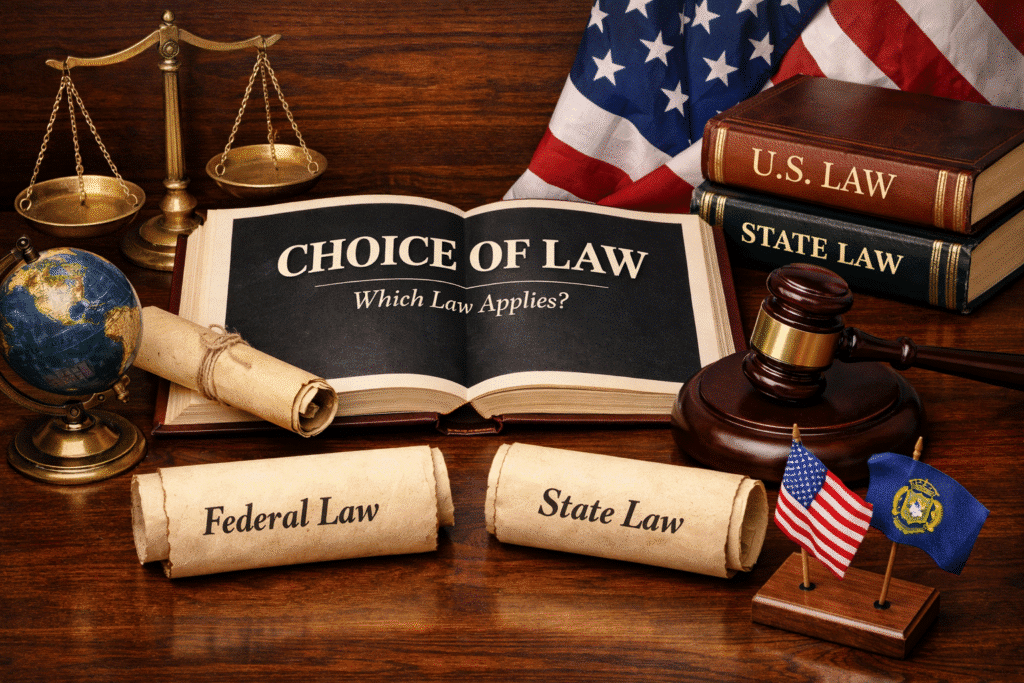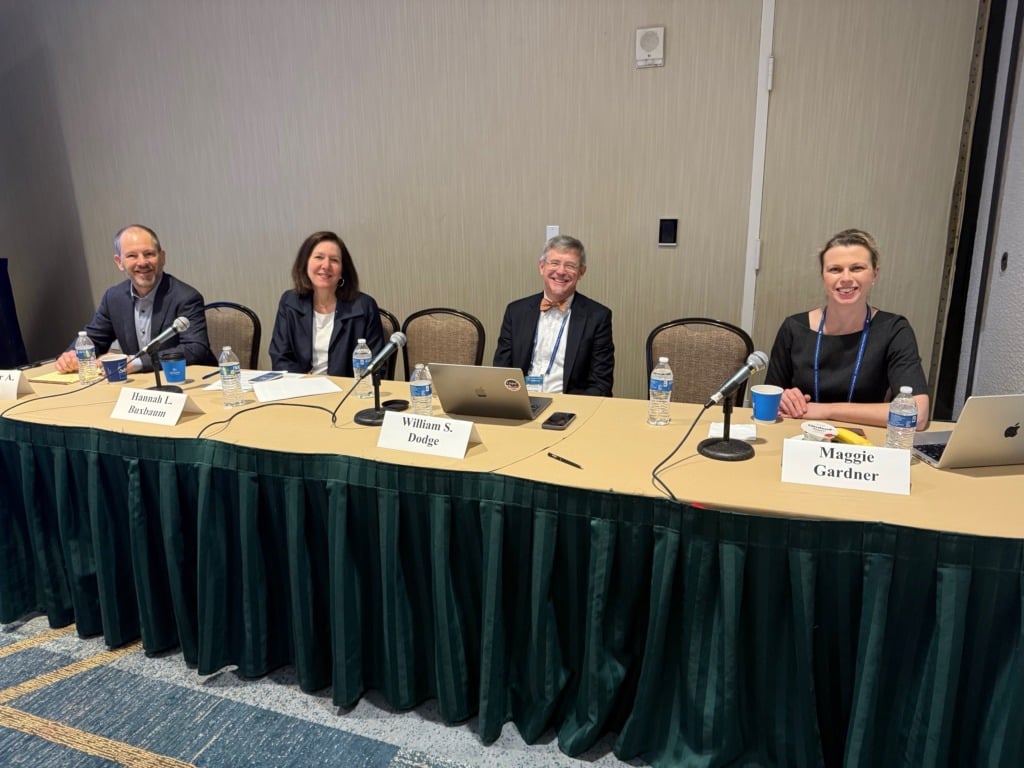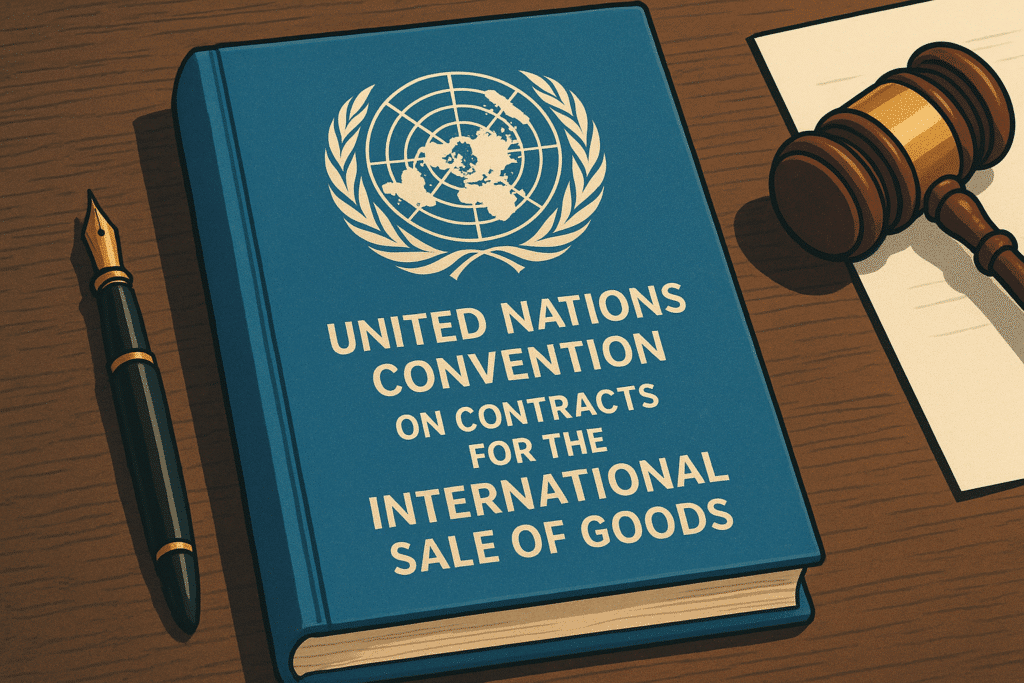Choice of Law in the American Courts in 2025
The thirty-ninth annual survey on choice of law in the American courts is now available on SSRN. The survey covers significant cases decided in 2025 on choice of law, party autonomy, extraterritoriality, international human rights, foreign sovereign immunity, adjudicative jurisdiction, and the recognition and enforcement of foreign judgments. This annual survey was admirably maintained by Symeon Symeonides for…
Continue ReadingExtraterritoriality in Flux
Earlier this month, at the annual meeting of the Association of American Law Schools, TLB Editors Maggie Gardner, Bill Dodge, and Hannah Buxbaum participated in a panel organized by the Section on Conflicts of Law entitled “Extraterritoriality in Flux.” This post summarizes their remarks. Maggie Gardner: It’s Time to Look Beyond the Presumption Against Extraterritoriality…
Continue ReadingAALS Conflicts Section Panel: Extraterritoriality in Flux
Those readers attending the AALS Annual Meeting in New Orleans might be interested in attending the panel sponsored by the Conflicts Section on January 9 at 8:00-9:15. The topic is “Extraterritoriality in Flux” and here is the description: In determining the law applicable in a particular case, a critical step is often to determine the…
Continue ReadingActually, Courts Love the Third Restatement: A Response to Listwa
Every author knows the mixture of excitement and trepidation that follows publication as you wait for the reviews to roll in. For Reporters of Restatements, the sentiment is perhaps more acute: there is one audience that is particularly important, judges, and one question that matters: will they find the Restatement helpful? It is gratifying whenever…
Continue ReadingA Warning Sign? The Washington Supreme Court Declines to Adopt the Draft Restatement (Third)
The Washington Supreme Court recently issued its decision in Erickson v. Pharmacia LLC, one of a number of related lawsuits filed by teachers and their family members seeking damages for chemical exposure at Washington schools—cases collectively seeking over a billion dollars in damages. While the case is significant in its own right, it is of particular…
Continue ReadingChoice of Law in Shareholder Derivative Litigation
U.S.-based investors hold trillions of dollars in equity of foreign companies. In the event of corporate wrongdoing, those investors may want to initiate shareholder derivative litigation in the United States against the managers of those corporations. This form of litigation is brought on behalf of the corporation itself rather than as a direct action. Derivative…
Continue ReadingThe CISG Saves the Day
The United Nations Convention on Contracts for the International Sale of Goods (CISG) has long been something of an enigma to American lawyers. The available evidence suggests that many U.S. lawyers are unaware of this treaty’s existence nearly forty years after it was ratified. In many cases, U.S. lawyers are upset to learn, first, that…
Continue ReadingUsing TLB to Teach Conflict of Laws (2025 Update)
This post updates our series explaining how professors can use resources on TLB to teach various classes. Previous posts have discussed Transnational Litigation, Civil Procedure, Foreign Relations Law, and International Business Transactions. This post discusses Conflict of Laws. All of these posts are accessible at our Teaching Resources page. Primers and Topic Pages Conflict of…
Continue ReadingA Costly Drafting Mistake
When I teach Conflict of Laws, I spend a lot of time showing my class how to draft a good choice-of-law clause. It’s not hard. Everything you need to know is laid out in the Primer on Choice-of-Law Clauses. Unfortunately, these instructions are not always followed. In one recent case, Pool Scouts Franchising LLC v….
Continue ReadingDemystifying Borrowing Statutes
A borrowing statute is a law directing the courts in one jurisdiction to “borrow” the shorter statute of limitations of another jurisdiction. Borrowing statutes are common in the United States—thirty-six states have enacted them—but they are largely unknown in the rest of the world. In this post, I seek to demystify borrowing statutes for the…
Continue Reading






